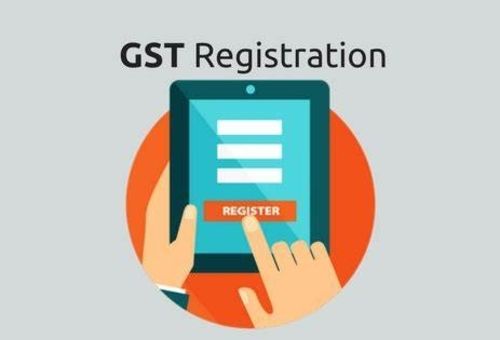Navigating the Complexities of GST Registration: Professional Tips and Ideal Practices for Easier Conformity
From figuring out enrollment requirements to harnessing technical tools for structured procedures, the journey in the direction of smoother GST compliance is complex and nuanced. Keep tuned to reveal crucial methods and insights that can aid businesses guide through the complexities of GST registration with skill and self-confidence.
Recognizing GST Enrollment Requirements

In addition to turnover thresholds, organizations taking part in interstate sales or offering taxable solutions might likewise be required to register for GST, even if their turnover is below the suggested limit (Singapore GST Registration). Comprehending these thresholds and demands is vital to avoid fines and make certain smooth operations within the legal framework
In addition, companies have to collect and prepare the essential documents, such as evidence of identification, address, business unification, and savings account details, prior to starting the GST registration procedure. Failing to offer exact information or satisfy the enrollment target dates can result in penalties or various other legal effects. Businesses should remain notified regarding the specific GST enrollment needs applicable to their operations to preserve conformity and stay clear of potential issues.
Organizing Vital Paperwork
Businesses starting the GST enrollment procedure have to thoroughly assemble and organize the crucial documents required for submission. The crucial files normally needed for GST registration consist of evidence of organization enrollment or consolidation, address and identification evidence of business proprietors or companions, checking account information, evidence of major location of company, and authorization kinds. Making sure that these documents are readily available and organized can simplify the registration procedure and prevent denials or delays.
To properly arrange vital documentation, services need to produce a centralized system for saving and classifying the needed documents (Singapore GST Registration). Utilizing digital storage remedies can help preserve very easy accessibility and ensure that documents are securely kept. In addition, developing a list of all required papers can work as a handy tool to track what has actually been gathered and what is still needed for entry

Leveraging Technology for Effectiveness
Enhancing operational effectiveness with technical assimilation is extremely important for modern-day companies browsing the complexities of GST enrollment. One of the vital means technology can assist in GST registration is via the use of automated software application services.
Furthermore, technology can promote smooth communication with tax authorities. Online portals and communication devices allow services to send documents, settle queries, and obtain updates in a much more effective manner. This not just speeds up the registration process however likewise helps in maintaining clear and reliable communication with the relevant authorities.
Moreover, cloud-based storage space options give a secure system for companies to shop and accessibility their financial data, making certain conformity with GST record-keeping demands. By systematizing data storage space and automating procedures, businesses can improve their general performance and accuracy in GST registration treatments.
Proactive Compliance Surveillance

To make sure reliable aggressive conformity tracking, businesses should develop robust interior controls, conduct regular audits, and leverage automation tools for real-time tracking of GST transactions. Regular training sessions for staff members on GST compliance needs can likewise help in producing a society of compliance within the company. In addition, involving with tax obligation consultants or experts can give valuable insights and assistance on navigating complicated GST guidelines.
Engaging With Expert Specialists
Engaging seasoned tax professionals can dramatically reinforce a company's understanding and conformity with detailed GST policies. Specialist specialists bring a wide range of understanding and experience to the table, helping companies browse the intricacies of GST enrollment effortlessly. By leveraging their knowledge, companies can make certain precise filings, lessen the threat of mistakes, and remain updated with the most up to date regulatory changes.
When involving with expert consultants, it is necessary to pick specialists with a solid track document in GST compliance (Singapore GST Registration). Search for professionals that have a deep understanding of the pertinent legislations and policies, along with experience working with services in your market. Effective interaction is type in this collaboration, so make sure to clearly specify your assumptions and establish regular touchpoints to talk about development and deal description with any problems
Moreover, expert professionals can offer important insights and guidance on enhancing your tax method, identifying potential cost-saving possibilities, and improving your conformity procedures. Overall, investing in professional consultancy services can go a long method in making sure smoother GST compliance and staying clear of expensive mistakes.
Conclusion
Finally, navigating the complexities of GST enrollment calls for a detailed understanding of the needs, organization of crucial documents, leveraging technology for effectiveness, proactive conformity monitoring, and involvement with professional professionals. By adhering to these ideal methods, services can make certain smoother compliance with GST guidelines and stay clear of potential fines or fines. It is vital to remain informed, aggressive, and persistent in taking care of GST registration to maintain compliance and maintain monetary honesty.
To make sure conformity with tax regulations, services have to completely recognize the elaborate requirements for GST enrollment. Product and Solutions Tax (GST) is a value-added tax obligation levied on many products and solutions in a country, making it critical for businesses to sign up for GST to avoid legal repercussions.Furthermore, organizations must collect and prepare the essential documentation, such as proof of identity, address, organization consolidation, and financial institution account details, prior to starting the GST registration process. Services ought to stay informed about the specific GST registration demands suitable to their procedures to maintain conformity and avoid potential issues.
The vital papers typically needed for GST registration consist of evidence of organization registration basics or identity, address and incorporation evidence of the company proprietors or partners, bank account information, evidence of principal location of service, and consent types.